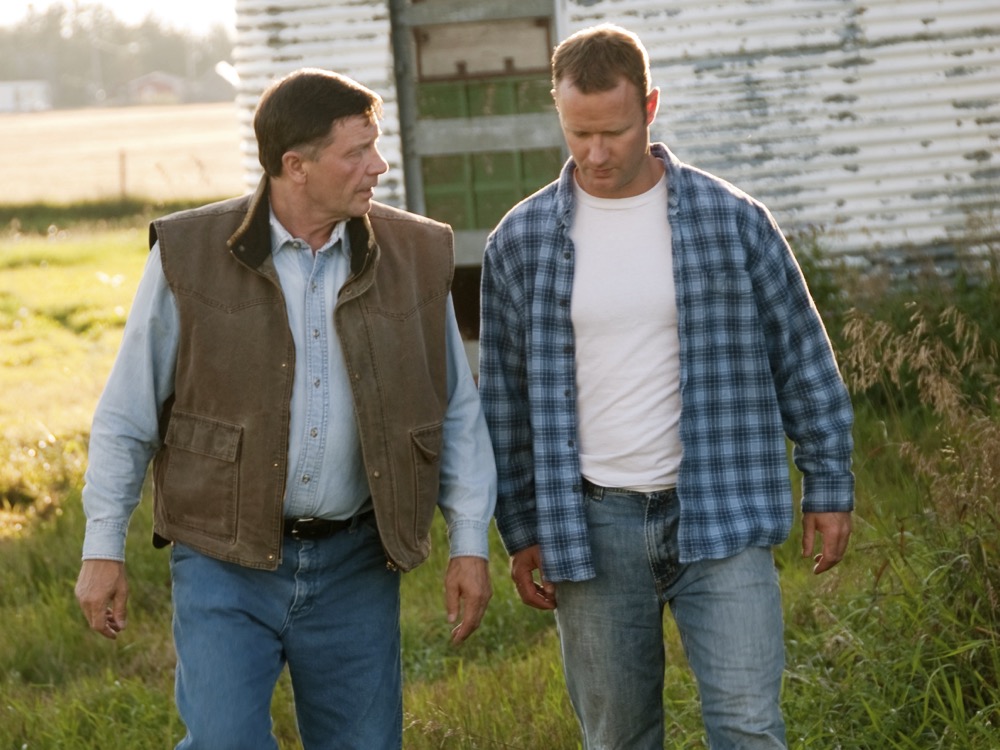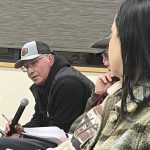Of our 96 living decedents on my father’s side, most show up for our annual family Christmas party. It is a fun affair with games, crafts, sharing, potluck dinner and a dance. Our history covers the walls of the hall in documents and photographs. It’s our “not to be missed” event of the year.
For newcomers into the family, though, it can be a bit much. That’s a lot of love in one room, and if they came from homes or a place where love and kindness are not expressed it can seem surreal.
Read Also

What is a farm legacy?
The definition of “legacy” in agriculture is changing. I have worked in this industry in some capacity for more than…
We have often been asked: How do so many people get along?
There is a lot of work that goes into building deep respect. Family leadership does not happen by default; there needs to be a full recognition and acceptance of the diversity within the unit to make it all work. My joyous grandmother had set the tone, and as a family we do our best to follow her example.
This has become our culture.
Your baggage has arrived
Every family is a culture unto itself. It forms a community of different persons. From birth, children express their unique characters and we marvel or worry about their behaviour. Parents have to really work at leaving their past experiences behind so they can savour living in the moment with these unique children.
Sometimes, we know, it can all just go crashing down. It’s like a bell ringing and someone shouting; “Your baggage has arrived!”
As we grow, we create a past. In that history are events and experiences that shaped our view of the world. The journey may have been rocky. As individuals, we are affected differently. One person who witnesses violence develops a lifetime commitment to kindness while another carries on with the same violent behaviour to cope. Both can have baggage arrive at any time when they are triggered.
When our baggage arrives it is all right to go into a place of deep caring — for oneself. This is part of transformation and the diversity within ourselves.
Leadership is the ability to deal with those feelings honestly without taking down the rest of the family.
And, when others are acting in a way that is worrisome for us, we must accept that they are busy packing up their own baggage.
Intensive listening
In my research, the acceptance of diversity shines as one of the top five values of top leaders. So is intensive listening.
Intensive listening is more than hearing what is said; it is also the art of hearing what is not being said. An intensive listener does not preclude the next sentence nor do they let their bias stand in the way. Bias is a result of our experiences and it is part of the baggage we carry into a conversation.
Saying: “We have never done it that way before” is a bias laced with fear of the unknown or of change. Responding with: “I have never looked at this from that perspective before, tell me more” is an invitational approach.
Even when we are overrun with emotion or truly want to help, we must tune in with intensive listening. I recall just once being very angry with my children because their safety was in jeopardy and I was terrified. My first response was to admonish them for their choice. When I calmed down and listened to the whole story and fully appreciated the layers of the situation, I recognized that the children actually made a reasonable decision given the danger they were in. I could retract, apologize and invite further dialogue.
This conversation was the basis of collaborating with them on the development of protocols for their safety. Had I not listened intensely, even after expressing my own fear inappropriately, the opportunity for a rich, complex and valuable conversation would have been lost.
The courage is in the asking; the leadership is in the acceptance of the answer and of the person from whom it came.
It might be momentarily uncomfortable but certainly rewarding to know just what is happening with someone so important to you. It took great courage to address being a full-time working and travelling mom with my adult children. It took leadership to accept their answers about how that affected them. It takes courage to ask a detached child about the drug needle in their room. It takes leadership to dig in and listen deeply without judgment.
Inclusion is critical for it is only in being together and appreciating each other that the relationship can grow. If your child or spouse shouts out “You never ask me,” that is a great opportunity to consider that they do not feel heard. Intensively and respectfully listening is part of the invitation to be included in family life.
Leadership defined
Leadership defined is the acceptance of all people in all places at all times — and the ability to lead by walking beside others while leaving their dignity intact. When we are unsure of where someone is coming from, we can ask with the intent of listening to the answer or at the very least — simply be kind.
Leading in families is not about power or decision-making, and it most certainly is not about fear. Family leadership is exemplifying acceptance, deep caring, intensive listening and the preservation of dignity, even when the baggage arrives.












